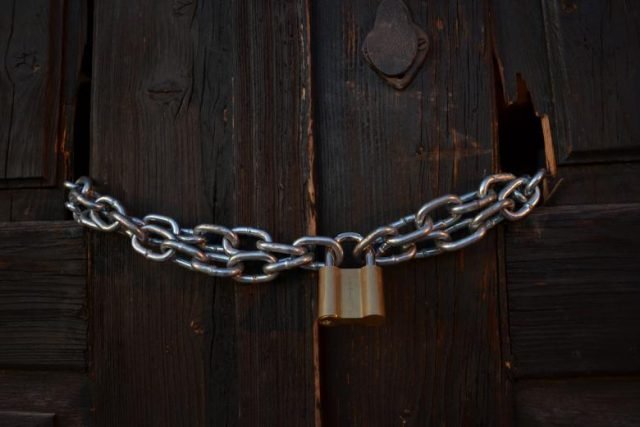If you are a commercial landlord in Florida, your written commercial lease agreement likely contains a provision stating something to the effect that, if your tenant is in default and has not timely cured such default, then you may terminate the tenancy, and be entitled to immediate possession of the premises. In enforcing such a provision, a landlord might, as an example, change the locks on the building, thereby depriving the tenant of access to the property. Such a remedy is sometimes referred to as a “self help” remedy.
While some states in our great nation may allow for such self help remedies, Florida is not one of them. As a 2016 case[note]Palm Beach Fla. Hotel v. Nantucket Enterprises, Inc., 211 So. 3d 42 (Fla. 4th DCA 2016).[/note] from Florida’s Fourth District Court of Appeals illustrates, engaging in self help may expose a landlord to liability for a wrongful eviction claim filed by the tenant. In the referenced case, the facts played out much like the scenario outlined above; the lease contained a provision[note]The lease provision read: “[I]f and whenever any Event of Default by Tenant shall occur, Landlord may after the continued Tenant default after the expiration of the time to cure … at its option and without further written notice to Tenant, in addition to all other remedies given hereunder or by law or equity, do any one or more of the following: (i) terminate the Lease, in which event Tenant shall immediately surrender possession of the Leased Premises to Landlord; (ii) enter upon and take possession of the Leased Premises and expel or remove Tenant and any other occupant therefrom with or without having terminated the lease…. Landlord shall not be deemed to have violated any right of Tenant and shall not be deemed to be guilty of trespass, conversion or any other criminal or civil action as a result of such action.”[/note] allowing for the landlord’s unilateral termination, the tenant defaulted under the agreement, and the landlord chained and locked the doors to the building. Adding insult to injury, several days after the chains and locks were put in place, the landlord had police escort the tenant’s employees from the building. Affirmed on appeal was a judgment against the landlord in the amount of $8.8 million for wrongfully evicting the tenant. In its analysis, the appellate court cited Florida Statutes, § 83.20, stating that the “only” conditions entitling a landlord to obtain possession of its leased premises are: 1) by court order granting a landlord possession; 2) when the tenant surrenders the premises to the landlord; or 3) when the tenant abandons the leasehold. As none of those situations occurred, “Landlord was not entitled to use self-help even though it was authorized by the terms of the parties’ lease.” Therefore, when faced with a tenant’s default, the wise landlord’s first call would be placed not to a locksmith, but to a Florida attorney, to follow the judicial eviction procedures outlined in the Florida nonresidential landlord and tenant act.

